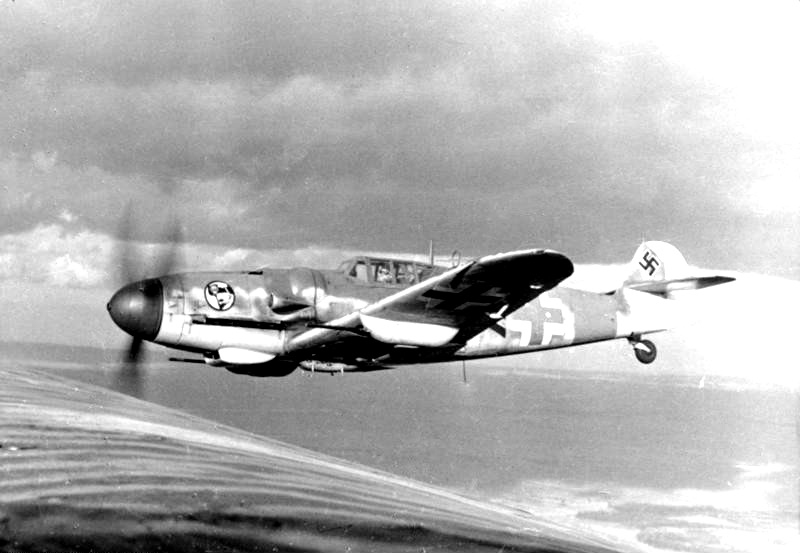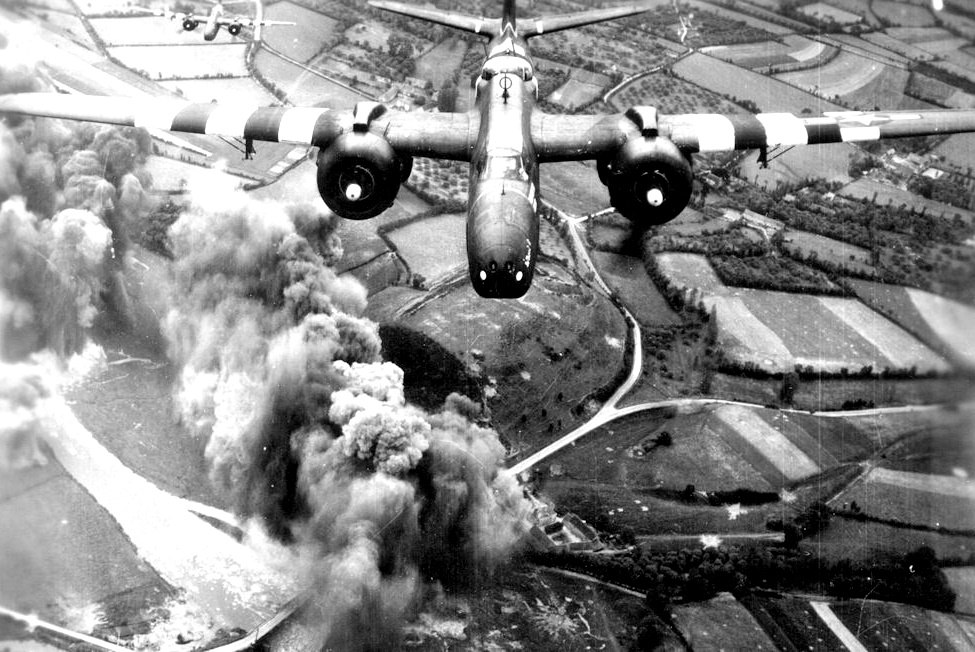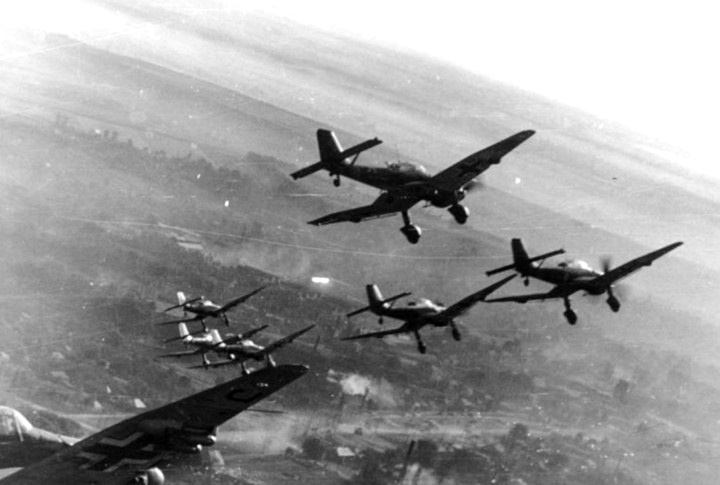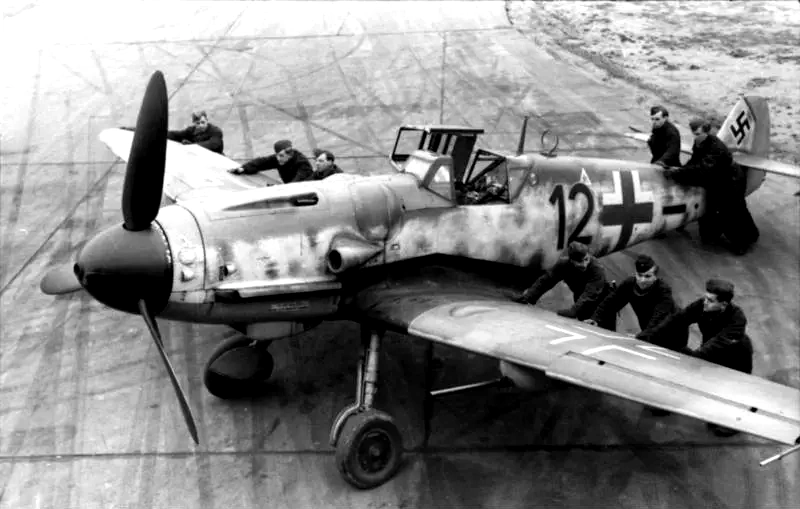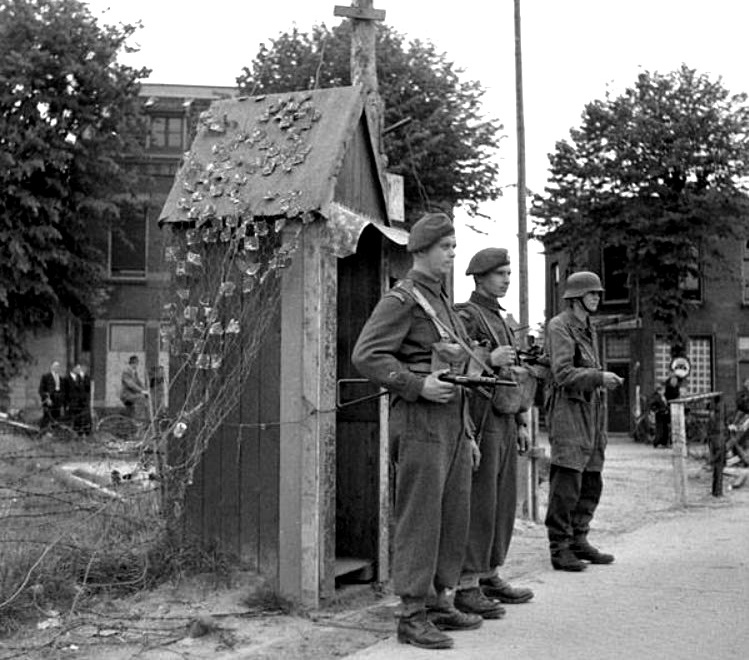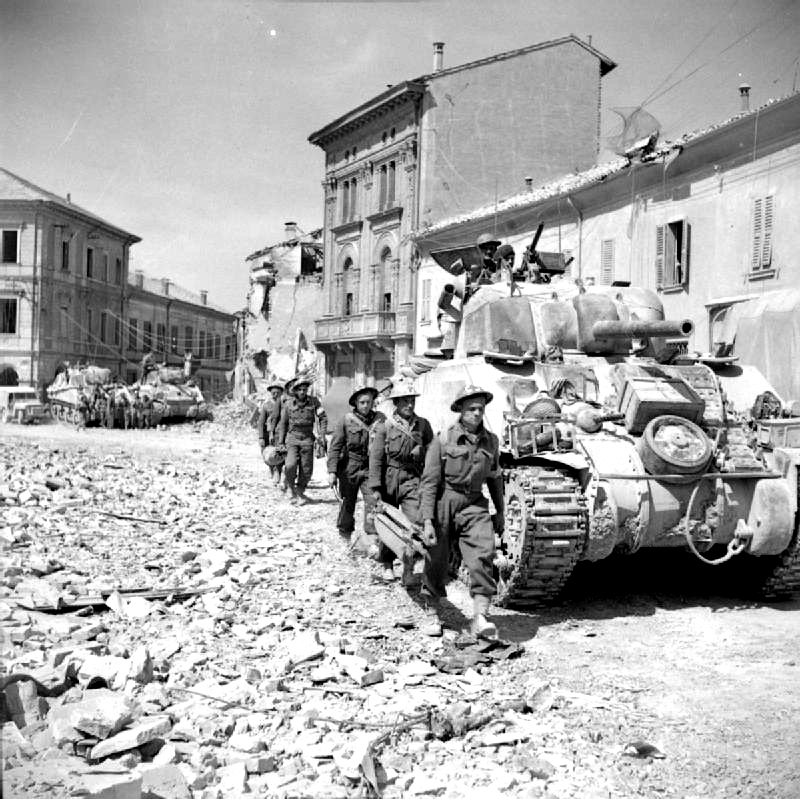(Document Source: The material presented herewith was prepared by Headquarters Army Air Forces, Mediterranean Theater of Operations, Intelligence Section, and is published for official use. January 1946)
FOREWORD
Eight months have elapsed since Germany went down in crashing defeat. Many of her war leaders were rounded up and placed in prisoner-of-war camps where they had ample time to reflect on the external and internal causes of that defeat. Some place the blame on a rotten political system, some on poor military leadership, but foremost among all the reasons emerges the crushing weight of accelerated Allied Air Might which finally beat the material and moral resources of Germany flat. Here are presented some views of Allied Air Power from those who were on the receiving end, their opinions of Germany’s major errors in the political and military field, and some suggestions on how they would like to rehabilitate their country.
AIR POWER – THE ROLE OF AIR POWER
August 11, 1945. The following opinions as to the role of air power, both in the past and in the future were expressed by various German generals captured in Italy: General der Flieger von Pohl, and CiC Luftwaffe in Italy. General von Vietinghoff, CiC Southwest (Mediterranean Theater). General Lemelsen, CG of the 14.Army in Italy since February 1945. General Jahn, CG Lombardy Command. General Wolff, SS OberGrüppenfuehrer u. General der Waffen SS.
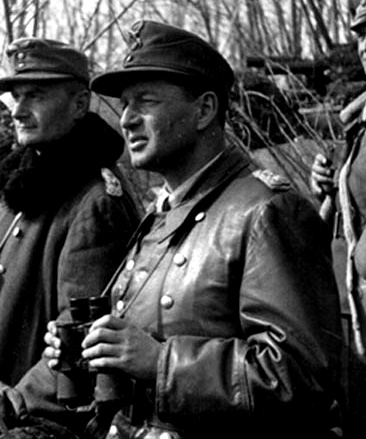 The Luftwaffe as a New Element in Warfare
The Luftwaffe as a New Element in Warfare
by General der Flieger Maximilian Ritter von Pohl.
The following combat possibilities of the Luftwaffe have revolutionized warfare:
(1) Heavy bombardment attacks at the front and on lines of communication for direct support of an offensive. The Luftwaffe, as opposed to artillery, has the advantage of greater range, greater possibility of concentrated effort from the point of view of place and time, and the possibility of more rapid shifting of the center of attack from one sector of an operation to another. The fact that the actual material effect of such an attack is not as great as that of a systematic artillery concentration is equalized by the greater morale effect on the troops. Examples: El Alamein and the spring offensive of 1945 in Italy.
(2) Decisive disruption of railroad and road systems in the field of operations, thus paralyzing enemy command. This hinders moving up reserves according to plan, carrying out tactical operations, and transporting supplies. Examples: The landing in Sicily and the invasion of France.
(3) Possibilities of attack on enemy armament and supply facilities at home. Modern industry is today so complicated and manufacturing processes have become so interdependent that enemy Air Force commanders, when aided by good intelligence, can with certainty establish the crucial key factories. Coordinated attacks by Allied Air Force units in great strength against such key points must eventually subdue the defense. Example: Collapse of the Luftwaffe because of the destruction of the fuel industry.
(4) Increasing effectiveness of air attacks against naval units. This resulted from the rapid development during the war of bombs and torpedoes with improved size and range. Example: Driving the German and Japanese fleets from the high seas, in which carrier-based aircraft played a large part. Likewise in the defeat of our U-boat warfare. In one respect the air attacks did not prove as decisive as had originally been feared; namely, for the demoralization of the civilian population by air attacks against residential and industrial centers. Examples: The attitude of the English population in 1940, and the German in 1942, 1943, 1944, and 1945.
It must be emphasized that the decisive victories in the war were always won only with clear-cut numerical superiority. Purely defensive tactics on the part of fighters and flak, without the possibility of counterattacks on bomber airfields, do not promise any sustained success. Escort aircraft and the ever-increasing ceiling for attacking aircraft tend to reduce the effectiveness of countermeasures. Even remotely controlled air weapons have, according to experience, shown themselves better adapted for attack than for defense. In view of the above, it can be said that for the immediate future a great power can only wage war with any prospect of success if it commands an air force at least equal to its enemy’s; and if smaller powers can maintain their right to exist only by immediate dependence on great power.
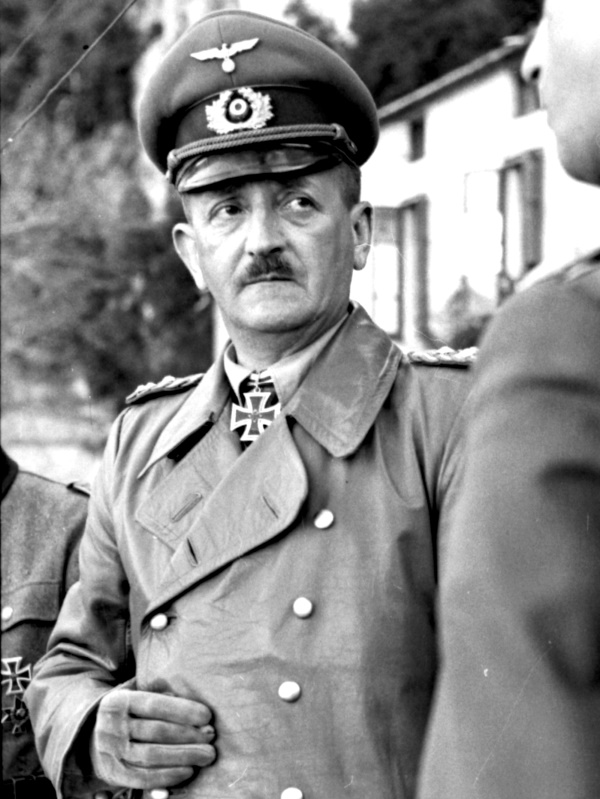 Air Power is Decisive Importance to the Conduct of a War in Two Ways
Air Power is Decisive Importance to the Conduct of a War in Two Ways
by Generaloberst Heinrich Gottfried Otto Richard von Vietinghoff (Scheel)
(1) Tactical. The air force is of the greatest importance during land or sea battles in that it can bring the full weight of its power to bear on a particular position in the shortest possible time; can knock out any enemy attack, no matter what the element of surprise, and can render support for the advance of friendly ground troops. It is useful for destroying, or at least keeping under cover, forward positions and for neutralizing to a large extent the action of enemy tanks, artillery, and heavy weapons. The bringing up or redeployment of reserve troops can likewise be hampered through air attacks. Airborne landings behind the front lines in order to block off transportation bottle-necks, bridges, etc., permit the attack to develop quickly. Likewise, the supply traffic of the enemy can be destroyed to a substantial degree and restricted to nighttime hours.
(2) Strategic. Regardless of the situation on the ground, the air force is able to carry the battle deep into enemy territory to destroy the transportation system, supply dumps, and war industries and to wear down the civilian population, especially women and children, whose preservation is the chief aim of the soldier at the front.
(3) Combined Effect. By means of a superior air force, a country is able to force the enemy to fall back on purely defensive measures, and he must eventually succumb to ever-increasing shortages of supplies. At the same time, control of the seas is simplified through: a. Prompt knowledge of all enemy fleet concentrations and movements. b. Quick discovery of enemy convoys, simplifying their destruction. c. Restriction of enemy U-boat (submarines) warfare and which also affects the safe movement of friendly convoys.
(4) Effect of Air Power During the War. This war has shown beyond a doubt that air superiority is a prerequisite if successful results are to be achieved. This was proven for Germany in the Polish Campaign and the French Campaigns, whereas Dunkirk already demonstrated that if both air forces are of equal strength they virtually cancel out so far as their effect on ground operations is concerned. This was likewise noticeable in the war against Russia. Despite heavy numerical superiority on the part of the Russian Air Force, the higher quality of the German pilots equalized this situation to such an extent that the actual influence on the conduct of the battle by the armies was practically nil.
In contrast to this, the complete mastery of the air on the part of the Allied Air Forces was of decisive importance in France as well as in Italy and on the sea (submarine warfare), both to the conduct of the war by the army and the navy, as well as to war industries and supply by reason of attacks on Germany itself. Had this superiority not been present, the war would have ended differently.
(5) The Future of Air Power. Personally, I am reluctant to advance any opinion on this subject, especially since it has no longer any meaning for Germany. I could imagine that a strong air force if put at the disposal of the new League of Nations, would always be in a position, thanks to the speed with which it could be employed, to: a. Put down at its inception any attacks which threatened a member of the League. b. And from the larger point of view, to delay any unfriendly action long enough so that other and diverse means could be employed.
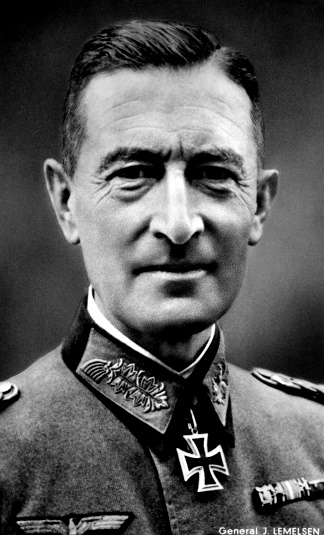 The Role of the Air Force During the War
The Role of the Air Force During the War
by General der Panzertruppen Joachim Lemelsen
The possession of a modern, highly developed air force is of critical importance to any warring state. The first requirement is winning and then continuing to hold air superiority through the use of all combat means of the air force. This hypothesis proved itself to be correct and decisive during the war just ended when the Air Force was used as follows (not arranged chronologically): a. Destruction of the transportation system, thus preventing enemy supplies from reaching the front and interfering with the movement of rail and sea transport. b. Destruction of the enemy’s war industries, especially the aircraft and fuel industries, as well as tank factories. c. Paralysis of all troop movements attempting to use motor transport for operative or tactical purposes in areas behind the front line. Also the attacks on U-boats (submarines). d. Immediate tactical support of fighting troops by means of heavy bomber attacks and the use of fighter bombers against enemy front-line troops, including enemy CPs. e. Transport and, later, supply paratroopers and airborne infantry troops from the air. f. Reconnaissance.
A country that is unable to protect itself against such possibilities by creating a superior air force of its own must lose the war, despite the best equipment in men and materials for its army and navy. The war just ended has shown this most clearly. The Future of Air Power. In order to accomplish their most important objective, to maintain world peace, the United Nations will need air power superior to that of any other country or group of countries. Only by this means will it be possible to nip in the bud every attempt to promote war. A prerequisite of this is, to be sure, continuous control of. the aircraft industry of the participating countries.
 The Effect of Air Superiority
The Effect of Air Superiority
by General der Artillerie Kurt Jahn (Curt Jahn)
It is quite clear that the initial successes of the German war machine were decidedly facilitated through the overwhelming strength of the German Luftwaffe. This includes the earliest part of the Russian Campaign when the enemy was still numerically inferior. Later, thanks to the enormous material resources of the United States and to a lesser degree Great Britain, the Allied Air Forces caught up with this original advantage and at the same time the German air leaders had failed completely to reckon with the certainty of attrition and battle losses and, still more important, with the possibility of a long war.
Thus, American Army Air Force and British Royal Air Force gradually obtained complete control of the air, both at the front and over German territory, and this air superiority was certainly the decisive although not the exclusive cause of Germany’s collapse. Both the front and the Fatherland were sacrificed with practically no method of defense against these overpowering attacks; even the greatest courage was of no avail against such superiority. In the face of such an unequal war, Germany should have discontinued hostilities as soon as it became clear that her inferiority in the air could never be overcome.
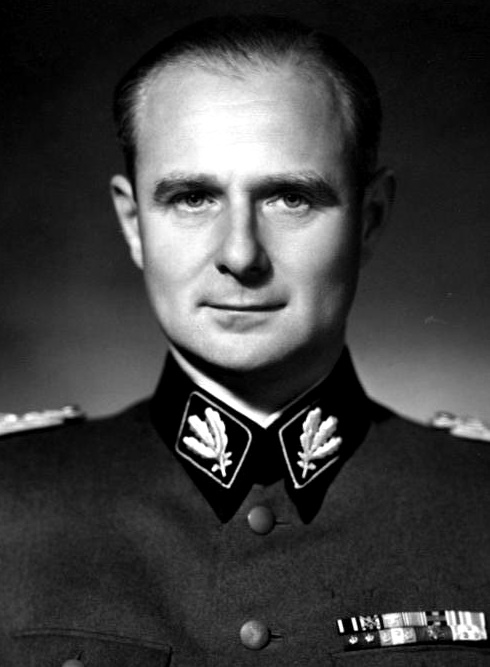 The Principal Mistake of the German Lufwaffe
The Principal Mistake of the German Lufwaffe
by SS-Obergruppenfuehrer Karl Friedrich Otto Wolff
The main mission of the German Luftwaffe, as I see it, was to achieve and retain air superiority as a prerequisite to a final German victory. The principal emphasis, therefore, should have been on expanding where possible, or at least retaining, the advantage which Germany had at the start of the war both in technology and the number of aircraft available. The most disastrous mistake of the Luftwaffe was, in my opinion, the retention of Goering as Commander in Chief until a few days before the end of the war, although his failings as a leader and in his character had been apparent for a long time.
These failings had an unfavorable effect on the entire Luftwaffe and on Luftwaffe operations in ever-increasing fashion as follows:
a. It resulted in false and arbitrary policies with regard to personnel so that the right man was not put in the right place but, rather, a policy of ‘divide and rule was followed in order that no contender for his position should be allowed to develop. There was favoritism and corruption of the worst sort which brought about uncertainty within the Luftwaffe and crippled all initiative.
b. As a result of his deficiency in military knowledge and his own arrogance, he made fatal miscalculations as to the situation, for example: (1) He did not effect a timely dispersal of aircraft, fuel, and armament production to underground factories, nor provide sufficient antiaircraft guns. (2) Overtaxing the Luftwaffe during the attacks on England in the autumn of 1940. (3) Promising air superiority for the eight days of the German Offensive in the Ardennes, presumably guaranteed by the use of 3000 German aircraft. In actuality the SS Leibstandarte Adolph Hitler did not see a single German aircraft in their sector throughout the whole offensive since all of the German pilots had already been intercepted by the Allied Air Forces at the Rhine.
c. Because of a lack of technical knowledge and especially because of faulty personnel policies on the part of Goering, many mistaken paths of development were pursued by the Luftwaffe after the death of General Udet; and to some extent, previous progress was abandoned. The presentation of gifts became so rank (it is said that State Counselor Gritz bach used to advise each of the companies before Georing’s wedding anniversary or birthday, what type of gift Goering expected and about what they were expected to pay for the gift) that there is ample room to suspect that unhealthy competition between the four leading aircraft manufacturing companies, Messerschmitt, Heinkel, Junkers and Focke-Wulf, was encouraged with an eye to such graft. The disastrous result was the development of an unintegrated program so that far too many types were made which, owing to the multiplicity of parts required to service them, presented an insoluble problem as the transportation situation continued to grow worse. The same was true of the so-called ‘ring production’ in which many individual spare parts were never assembled into complete units because one small part was missing.
d. Because of Goering’s exaggerated ego and his hunger for personal power, countless unnecessary Luftwaffe Field Divisions were set up within the Luftwaffe, thus taking away some of the best of the available supply of young manpower from the army at critical times. These received infantry training which, because of a scarcity of experienced infantry officers, was completely inadequate. When they later went into action at a time when the army needed them, they failed accordingly. Likewise, the creation of the Paratroop Divisions, which were in themselves very good, could have achieved better success, in my opinion, as a part of the German Army (not the Luftwaffe), after they no longer served as paratroopers but rather as infantry divisions.
An additional serious mistake seems to me to have been improper coordination and failure to put the Luftwaffe clearly under the command of the Combined Staffs of the armed forces, which was likewise not done because of consideration for the Commander in Chief of the Luftwaffe.
 Opinions of Generalleutnant Viktor Leopold Linnarz
Opinions of Generalleutnant Viktor Leopold Linnarz
Commanding General 26.Panzer-Division in Italy
June 26, 1945.
The following report is the result of several conversations with General Leutnant Linnarz who was the Commanding General of the crack German 26.Panzer-Division during World War Two in Italy.
The Role of Air Power
Single battles, in my opinion, are not decisive; they are only apparently decisive. The same thing is true of air battles. The complete havoc wrought by Allied air power toward the end of the war when we no longer had an air arm worthy of the name, may give an entirely false impression of the role of air power in deciding the victory. Such overwhelming air supremacy is not so much the cause of Germany’s defeat, but the result and visible evidence of Germany’s defeat. The war was actually decided long ago, and if the German government had given up earlier before air power had devasted the German cities, and before the Eastern and Western land armies had joined, the results of great decisive air and land battles preceding Germany’s military collapse would not have been known. The great destructive capacity of giant air armadas would not have been realized.












